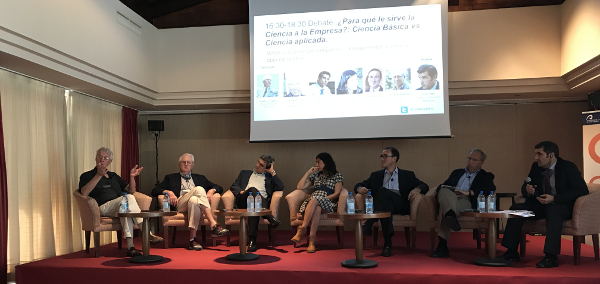 The First Scientific Meeting of the Royal European Academy of Doctors-Barcelona 1914 (RAED), held in Fuerteventura between 8 and 11 June, claimed the value of scientific research itself, beyond its applications and its economic return. That was the main conclusion of the debate “¿Para qué sirve la ciencia a la empresa? Ciencia básica versus ciencia aplicada” (What good is science for business? Basic science vs. applied science), which was attended by the Nobel laureates and honorary academicians of the RAED Richard Roberts and Sheldom Glashow, the full academician Jaume Armengou, university professors Sonia Fernández and Juan Ruiz Alzola, and José María Baldasano, Jaime I Environment award. The session was conducted by the also academician and member of the Governing Board Jordi Martí.
The First Scientific Meeting of the Royal European Academy of Doctors-Barcelona 1914 (RAED), held in Fuerteventura between 8 and 11 June, claimed the value of scientific research itself, beyond its applications and its economic return. That was the main conclusion of the debate “¿Para qué sirve la ciencia a la empresa? Ciencia básica versus ciencia aplicada” (What good is science for business? Basic science vs. applied science), which was attended by the Nobel laureates and honorary academicians of the RAED Richard Roberts and Sheldom Glashow, the full academician Jaume Armengou, university professors Sonia Fernández and Juan Ruiz Alzola, and José María Baldasano, Jaime I Environment award. The session was conducted by the also academician and member of the Governing Board Jordi Martí.